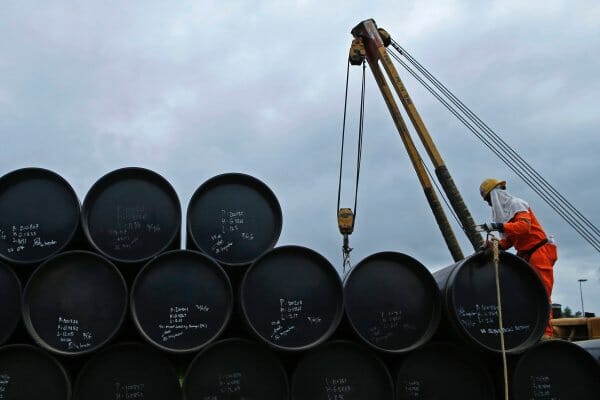Crude oil duty to be increased in Kazakhstan

The government of Kazakhstan is going to increase its export customs duty (ECD) for light and dark oil products threefold from a coefficient of 0.3 to 1, according to Vice Minister of Energy Aset Magauov.
«We are going to make the ECD for oil products and the crude oil the same with the coefficient 1. I mean that the old coefficient of 0.3 for light oil products will be increased to 1. About three years ago, this scheme had already been in place,» the official told Kursiv.
According to Magauov, three years ago the government planned to export oil products to foreign markets. This is why it decreased ECD for oil products to the 0.3 coefficient. At the time, Kazakhstan completed the renovation of its three big oil refineries and the government wanted to sell some extra amount of oil products to its Central Asian neighbors. However, because of the sharp increase in domestic demand for gasoline and diesel fuel, the government was forced to roll back this plan.
«We decreased the ECD for oil products to 0.3, much lower than the ECD for crude oil. We thought that we would export gasoline and diesel fuel, but then we realized that the internal consumption of these products skyrocketed. We have had no extra amount of fuel. In turn, this lower ECD has become a loophole for exporting oil semi-products such as gasoil and nafta,» Magauov said.
The ECD rate is floating. The State Revenue Committee calculates the rate based on the current sales of Brent crude oil with the help of a special equation. The official also noted that mini refineries took advantage of this lowered ECD for oil products. They have exported nafta, nefras and other oil products, while never supplying the internal market with gasoline and diesel.
In addition, the government wants all oil depots to be equipped with control devices starting in 2024. The authorities are also going to oblige oil refineries to produce more motor fuel (at least 45% out of their whole output). Mini refineries will be obliged to do so as well, although the government is going to let them go through a transition period when they can update their production facilities.
«Motor fuel must account for at least 45% of output. Of course, we will give them some time for modernization. This new rule isn’t going to enter into force immediately,» he said.
The 45% rule concerning motor fuel is going to be part of a newly amended legislation, while the increase of ECD will be approved by the decree of the authorized body. Those mini refineries which are not ready to adjust to the new reality can work until the transit period is over.
According to the Ministry of Energy, the total capacity of mini refineries is about three to four million tons per year. However, they prefer to export their products and have never been interested in supplying the domestic market with gasoline and diesel fuel.
«Their capacity is from three to four million tons combined, but they produce virtually no gasoline and diesel fuel. All they do produce are semi-products as they are more expensive than gasoline and diesel fuel and more profitable while being exported. This means that even though we call these entities refineries, they can’t invest money into production. How can they support our economy if they can’t produce gasoline or diesel?» Magauov said.
The Ministry of Energy forecasts that this year, oil product production in Kazakhstan will decrease to 13.44 million tons compared to the 13.68 million tons the country produced last year. If mini refineries are banned from exporting nafta and heating oil by any means of transport, this would cause their collapse, according to Abdymanap Isabayev from Mangystau Oil refinery. He made this statement during a press conference on January 31, 2023. However, on February 1, Minister of Energy Bolat Akchulakov said that the final decision concerning a ban on oil product exports might be made this week.

